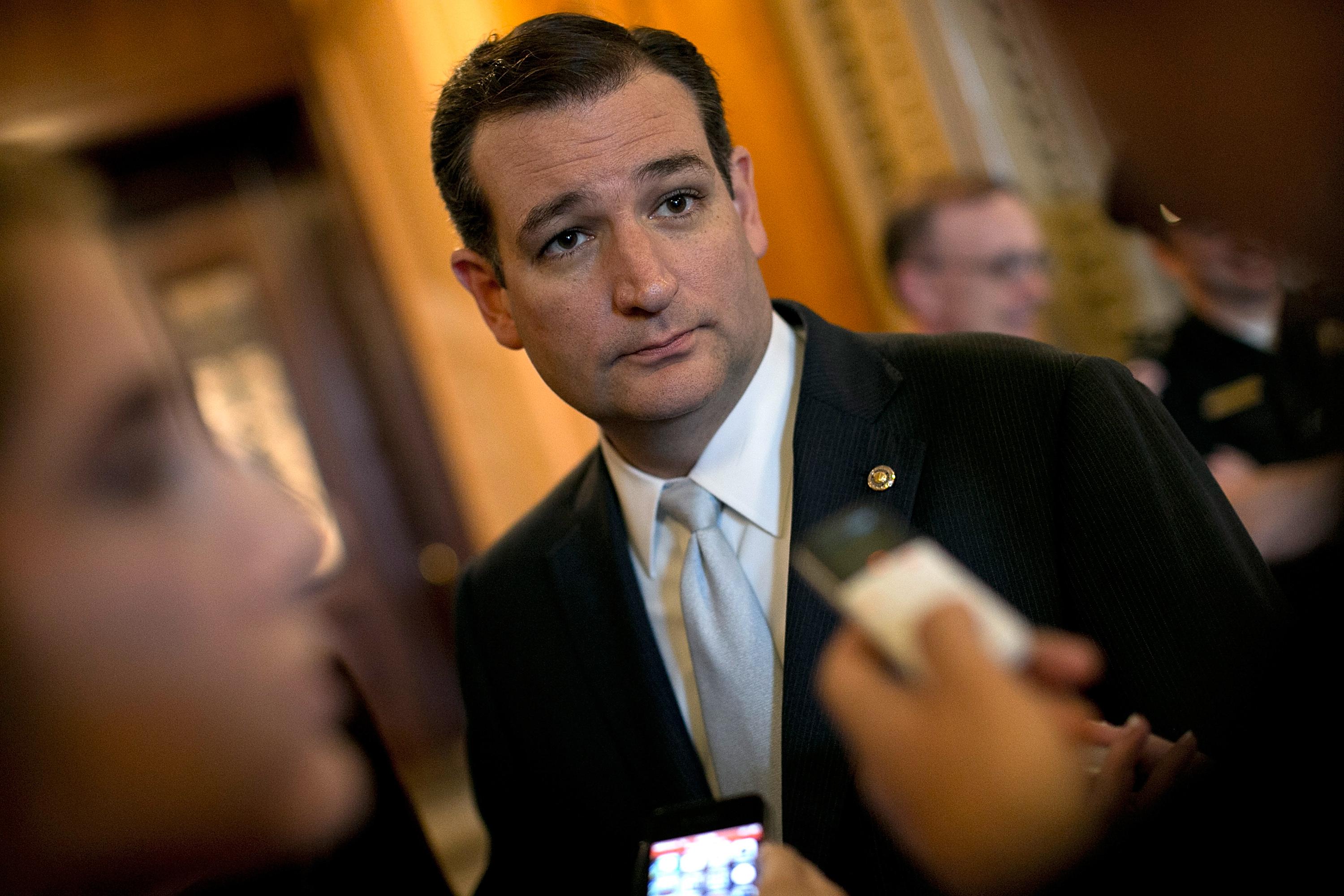For a few days, largely because of a blog post by Bloomberg Businessweek’s Joshua Green, the Internet has buzzed with speculation that Ted Cruz would “cause default” by slowing down a Senate vote on any deal. Green’s explanation:
The Senate can move quickly when necessary, but only by unanimous consent. Let’s say Harry Reid (D-Nev.) and Mitch McConnell (R-Ky.) strike a deal today (that’s looking unlikely). Cruz surely won’t like it and has said repeatedly, “I will do everything necessary and anything possible to defund Obamacare.” If he’s true to his word, he could drag out the proceedings past Thursday and possibly well beyond. “If a determined band of nut jobs wants to take down the global economy, they could do it,” says Jim Manley, a former top staffer for Reid.
“Former Reid spokesman thinks Cruz is crazy” is not as grabby a headline as “Cruz might cause default,” so—with due respect to Josh—I see why he went there. But the idea that Cruz would do this was rooted less in Cruz’s record and more in the emerging media picture of Cruz as a self-destructive fool.
Let’s recap. The week before the government shut down, Cruz made a deal with Reid to use most of the speaking time before the first cloture vote on the House’s continuing resolution. Thus began Cruz’s “filibuster,” which, as annoying pedants pointed out, was not a filibuster. Cruz did not plan to slow down the process at all. He was using the time available to him before a scheduled vote.
Actually, he was working to speed up the final vote. Near the end of his 21-hour speech, Cruz asked for unanimous consent that the 30 hours of debate scheduled on the bill be truncated. Instead of voting on Saturday, Cruz wanted the Senate to vote on Friday. Why? Cruz explained that he preferred a vote in broad daylight, normal work hours, not while college football was distracting a possible “grassroots army” from hassling Congress. Another explanation: The later the CR came back to the House, the less time the House had before the Monday 11:59 p.m. deadline.
This wasn’t covered very much at the time, so the legend of Cruz as a crazy filibusterer who would never back down only grew. Today, he was swarmed by reporters in the Senate as he gave a statement explaining that he would not deny UC on the bipartisan deal.
“I have no objections to the timing and the reason is simple,” said Cruz. “There’s nothing to be gained from delaying this vote one day or two days. The outcome will be the same. Every senator, every member of the House is gonna have to make a decision where he or she stands, but there’s no benefit. I’ve never had any intention of delaying the timing of this vote.”
Right. And no outside group was pressuring him to do so. Cruz was never going to jam the House by delaying a deal and absorbing all the blame for the consequences. That the media thought so reveals that his image has changed radically since getting to the Senate. He’s no longer viewed as the GOP’s answer to Barack Obama. The media views him as the Sarah Palin of the Senate. And by pledging so many times to do EVERYTHING HE COULD to block Obamacare, he didn’t exactly work to prevent that slide.
